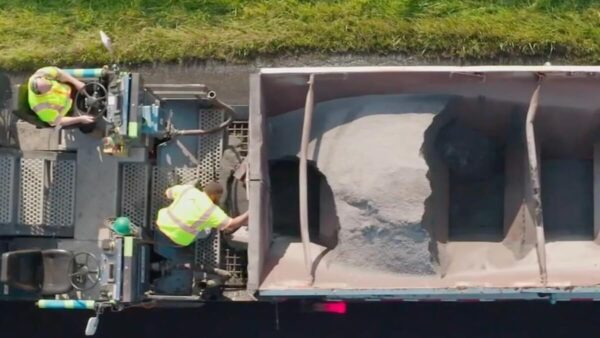‘Looking Like a Bunch of Monkeys’: Black Employees Allegedly Forced to Relieve Themselves Outside While White Employees Used Bathrooms Indoors, EEOC Lawsuit Against Florida Asphalt Paving Company Claims
The U.S. Equal Employment Opportunity Commission filed a lawsuit against Asphalt Paving Systems on Sept. 26, alleging the company created a hostile environment for Black employees in Zephyrhills, Florida.
The EEOC alleges that Asphalt Paving Systems violated Title VII of the Civil Rights Act of 1964 and 1991 by subjecting 12 Black now-former employees — Michael Cheaves, Anthony Clemons, David Cooper, Freddrick Cooper, Broderick Curney, Olusoga Davis, Kendall Gadson, Joseph Haynes, Alvin Matooram, Willie Moore III, David Whipper, and Jack Cornell Youmans to racial harassment in the workplace.
The EEOC claim lays out a litany of allegations against APS, many of which are enumerated below.
According to the lawsuit, the employees were repeatedly called the “N-word” and “boy” by other employees and management. They were also subjected to demeaning working conditions, such as being forced to work in heavy rain while white employees watched. The Black employees were also forced to relieve themselves outside, while white employees were allowed to use the bathrooms indoors.
“Throughout the course of Charging Parties’ employment with APS, they were subjected to racial epithets and racially-charged verbal abuse from white supervisors and co-workers, threatening conduct by white supervisors and co-workers, and being forced to work in demeaning and humiliating working conditions,” the complaint says.
Trending Today:
Black Tesla Employee Claims White Co-Workers, Supervisor’s ‘Preferred Pronoun’ to Use Was the N-word
A white foreman named Anthony Buchholz was one of the supervisors who often used racial slurs to refer to Black employees, according to the EEOC.
“Buchholz would use the N-word frequently in front of Curney,” reads the lawsuit. “Curney objected to Buchholz’s use of the N-word directly, but Buchholz continued to use it. After Curney’s objections, Buchholz then came to a job site with a friend and yelled ‘I ain’t gonna ever run from a Black N—r’ at Curney.”
The lawsuit also noted that a foreman named Douglas Henry often called Black employees “boy” and that the company prevented a paving crew from finding other employment by calling a potential employer and telling them not to hire the men. The men were also called “Black boy,” “monkey,” and “Black motherf-cker” by Asphalt Paving System employees.
Supervisor Dennis Williams was overheard saying the Black paving crew “were looking like a bunch of monkeys,” and another employee, Mike Whitson, called Freddrick Cooper a monkey directly to his face “on a frequent basis.” Whitson also called the men “sissies” and “f—ggots” and referred to David Cooper as a “dumb N—r.”
The company’s mechanic, referred to in the lawsuit as “Jackie,” made comments to Black employees such as, “Black is beautiful, tan is grand, but white is the color of the big boss man” and that he was “Black from the waist down.”
By March 2022, every one of the Black employees had either resigned from APS or been fired.
EEOC Regional Attorney Robert E. Weisberg called the racial discrimination the employees faced “toxic.”
“The allegations in this case are deeply disturbing and illustrate the unfortunate reality that, 60 years after Title VII was enacted, toxic racial discrimination still plagues many workplaces in Florida,” said Weisberg. “The EEOC will continue to vigorously fight for the rights of Black employees and applicants to be free from workplace discrimination.”
The lawsuit asks Asphalt Paving Systems to “institute and carry out” policies, practices, and programs that provide Black employees with equal employment opportunities that “eradicate” their unlawful employment practices as well as provide the plaintiffs with compensation “in amounts to be determined at trial.”
The lawsuit also requests the plaintiffs be compensated for “the unlawful employment practices described herein, including emotional pain, suffering, inconvenience, loss of enjoyment of life, and humiliation,” as well as their legal costs.

